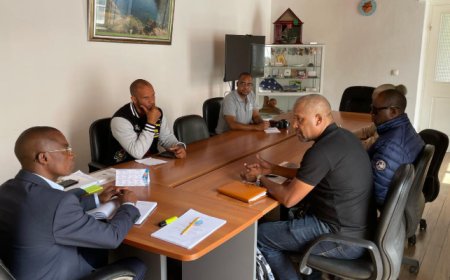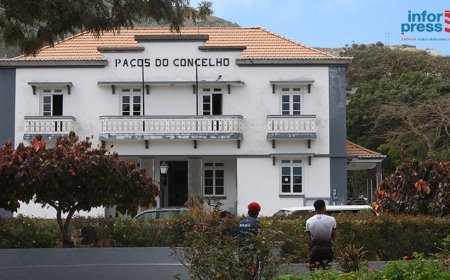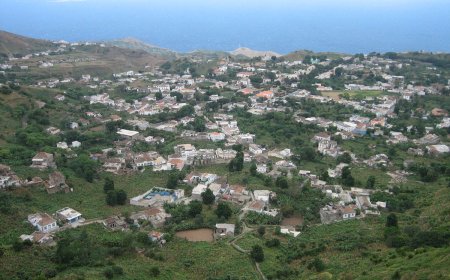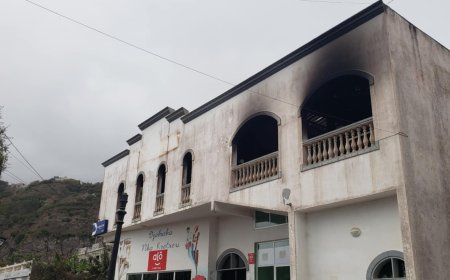The ideal factor that could lead the MpD to lose the Brava City Council: lack of transparency, nepotism and favoritism
The political scenario in Cape Verde, especially in the Brava City Council, presents a picture of increasing complexity and discontent. The Movement for Democracy (MpD), the party that has dominated local politics, faces a significant challenge that could result in the loss of its control over the city council. This article explores the factors that could contribute to this possible change, with a special focus on the accusations of lack of transparency, nepotism and favoritism that have emerged in recent times.

Transparency is a fundamental pillar for any effective and reliable public administration. In the context of Brava City Council, the perception of a lack of transparency has been a central issue. Lack of clarity in decisions and resource allocation can undermine public trust and fuel feelings of injustice.
In recent years, several projects and initiatives by the city council have been the target of criticism, as the tenders for award are not properly communicated or discussed with the population, and in most cases won by a single company. The absence of clear information about how resources are being managed and what the criteria are for implementing public policies can create an environment prone to speculation and distrust.
Transparency is not just limited to the availability of information, but also the way in which this information is accessible and understandable to ordinary citizens. If the MpD is unable to improve its communication and ensure that its actions are understood and accepted by the population, it could face significant attrition.
Nepotism and favoritism are serious issues that corrode the legitimacy of any administration. The accusations that the Brava City Council has favored certain individuals over others are worrying. Nepotism, which refers to the practice of favoring relatives in positions of power, and favoritism, which translates into preference for certain groups or individuals, create an environment in which meritocracy is compromised and equity is questioned.
When the population realizes that opportunities and resources are being distributed based on personal relationships rather than merit and real needs, trust in management weakens. In Brava, popular discontent has been increasing as Brava residents feel that the system is rigged to benefit a few instead of serving the common good.
These practices not only undermine the morale and efficiency of public administration, but also feed the narrative of corruption and injustice. This can mobilize the opposition and energize disaffected voters, who may seek political alternatives that promise a fairer and more transparent approach.
The Impact on Elections
The combination of lack of transparency, nepotism and favoritism can have a direct impact on elections. Dissatisfied voters are more likely to seek change and support candidates and parties that promise to reform the system and restore public trust. If the MpD does not address these issues effectively and demonstrate a real commitment to transparency and fairness, it risks losing popular support.
Furthermore, the opposition can capitalize on these weaknesses, presenting itself as the alternative that represents a cleaner and more responsible administration. The opposition's ability to construct a convincing narrative and demonstrate a clear plan to address the failures of the current administration could be a decisive factor in the elections.
To avoid losing the Brava City Council, the MpD will need to take significant measures to restore public trust. This includes improving transparency in resource management and decision-making, implementing rigorous policies to avoid nepotism and favoritism, and engaging more effectively with the community to understand and address their concerns.
Furthermore, it is crucial that the MpD shows a genuine commitment to reform and building a fairer and more equitable system. Carrying out independent audits, promoting greater citizen participation in decisions and implementing concrete measures against corrupt practices can help reverse negative perceptions and strengthen the party's position.
Conclusion
The loss of Brava City Council by the MpD is not inevitable, but it is a real risk if issues of transparency, nepotism and favoritism are not addressed effectively. The party needs to face these criticisms head on and demonstrate a clear commitment to integrity and justice. Only in this way will he be able to guarantee his political future in Brava and restore the population's trust, which, after all, is the basis of any legitimate and effective government.
Pedro Fernandes
Nova Sintra July 30, 2024




















































